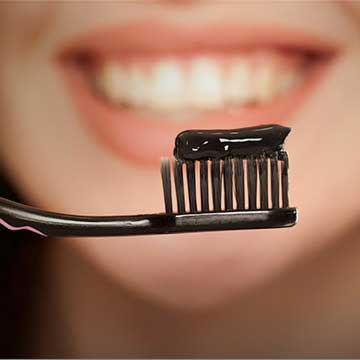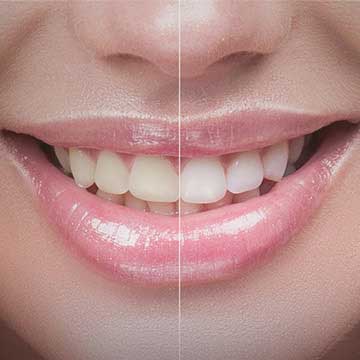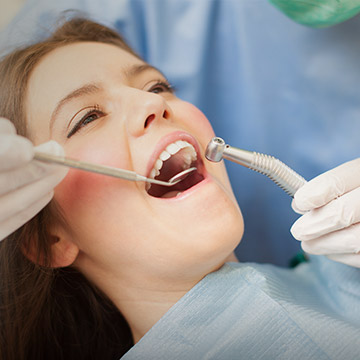Not all toothpastes are created equal. Each type has its strengths and benefits, and not all kinds of toothpaste are ideal for all types of teeth.
All Teeth
All teeth can benefit from added fluoride and tartar control. If you are considering using a whitening toothpaste, you should talk to your dentist and do your research before beginning.
Check for the CDA Seal of Approval
Before selecting a toothpaste, you should check that it has had its health benefits verified by the Canadian Dental Association. The CDA Seal program ensures that products can improve your oral health in the ways the product’s manufacturer claims and that the product does not make any claims that cannot be independently verified.
The Importance of Fluoride
You should always choose a toothpaste that is fortified with fluoride. Fluoride is a mineral that naturally occurs in soil, water, and many different foods. Fluoride is essential for good oral hygiene because it not only protects your teeth from decay but can also reverse tooth decay.
Most water contains at least trace amounts of fluoride. However, to help ensure that there is enough fluoride to effectively safeguard teeth, many Canadian municipalities, including St. Albert, add fluoride to their drinking water. However, even if your municipality adds fluoride to your drinking water, you should still select a toothpaste that contains fluoride.
Consider Tartar Control
When choosing a toothpaste, you should consider the level of tartar control each brand and type offers. Tartar is formed when plaque, a transparent sticky substance made by bacteria, is allowed to sit on the teeth. Tartar control toothpastes, which contain chemicals such as zinc citrate and pyrophosphates, can help prevent tartar buildup. Once plaque has hardened into tartar, it can only be removed by your dentist or dental hygienist using specialized tools.
When Choosing a Whitening Toothpaste
If you choose a whitening toothpaste, you should be aware that whitening products, including whitening toothpastes, can cause sensitivity and tooth abrasion. You should talk to your dentist before you begin using a whitening toothpaste.
Sensitive Teeth
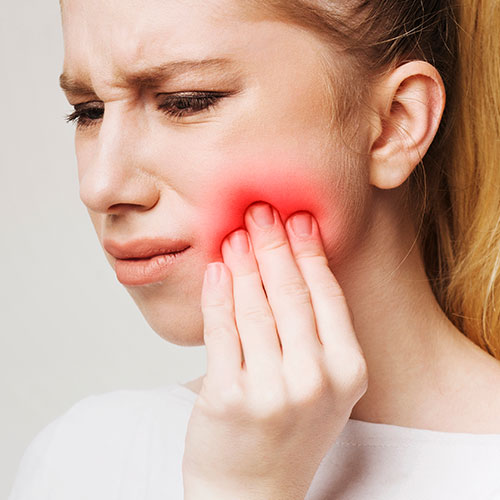
Tooth sensitivity can be caused by a variety of factors including worn enamel, exposed roots, gum disease, a worn filling, or a chipped tooth. Depending on the cause of your tooth sensitivity, you may benefit from choosing a toothpaste designed specifically for sensitive teeth. Sensitive toothpastes work by filling in the exposed channels in your dentin which allow hot, cold, acidic, or sweet foods to trigger the nerves in your tooth, causing pain. If your tooth sensitivity is caused by a chip, a cavity, or a worn filling, you should see your dentist for treatment as soon as possible.
If your teeth are extremely sensitive and off the shelf sensitive toothpastes are not able to provide you with relief, you should ask your dentist about getting a prescription for a stronger toothpaste that can better suit your needs.
Children’s Teeth

Children’s teeth require special care and attention, both at the dentist’s office and at home. Children under three years old should not use fluoride toothpaste unless they are at risk of developing tooth decay. You should always talk to your dentist before using fluoride toothpaste on a small child’s teeth. Even if your child requires fluoride toothpaste children under the age of three should only use a minimal amount of toothpaste (a portion about the size of a grain of rice).
If your child is not at risk of developing tooth decay, you should brush their teeth with water only until they are about three years old. Children between the ages of three and six require only a minimal amount of toothpaste (a portion about the size of a pea).
Parents and caregivers should brush their child’s teeth for them until they are about three years old, and assist with brushing until the child is about six years old. You should not allow your child to swallow toothpaste as this could cause dental fluorosis. Adults can also experience dental fluorosis, but because children are smaller, they are more likely to develop this condition.
Dentures
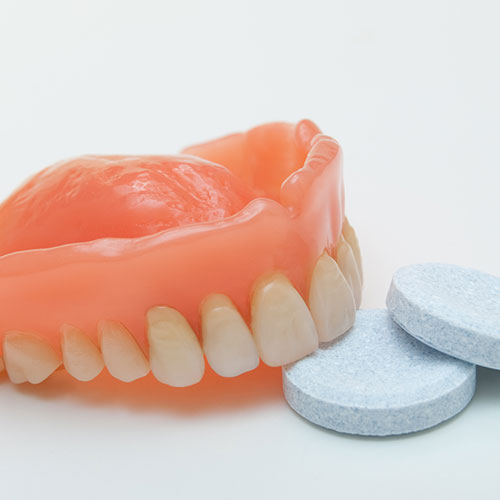
Regular toothpastes are too abrasive to be used on dentures. Though you can continue to clean any of your remaining teeth with a fluoride toothpaste dentures, need to be cleaned using a non-abrasive denture cleanser. You should never use whitening toothpastes or products that contain bleach on your dentures, as this can weaken your dentures and potentially damage them.
If you are unsure how to care for and clean your dentures properly, you should speak to your dentist or dental hygienist. They will teach you how to clean and care for your dentures properly and can suggest a suitable denture cleanser.
Braces
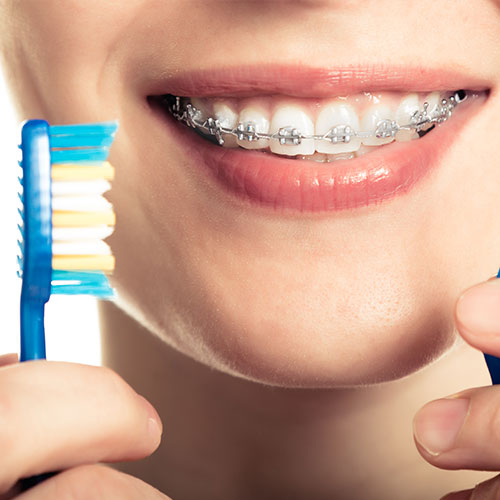
Regular toothpaste is fine for patients with braces. Select a toothpaste that contains fluoride, and make sure to choose a type that also fights tartar buildup. Braces increase the surface area you need to clean to ensure your mouth stays healthy, and tartar buildup can become a problem if you don’t keep it under control.
Individuals with braces should never use whitening products. The metal or ceramic brackets on your teeth prevent the whitening agent from reaching those areas, which means your teeth will whiten unevenly. When your braces are removed, you will be left with teeth that feature several shades of enamel.
If you are unsure how to clean your braces properly, you should speak to your dentist or orthodontist. They will show you how to clean and care for your braces properly and can offer toothpaste suggestions based on your unique needs.
Choosing the Right Toothpaste For You
If you are unsure how to choose a toothpaste you should ask your dentist or dental hygienist for suggestions during your next appointment. These professionals are familiar with your unique dental needs as well as the latest oral hygiene research.





